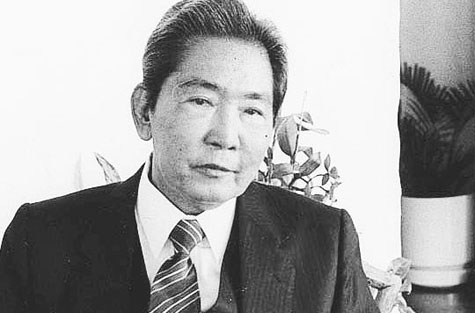
Manila: Two American specialists conducted two kidney transplant operations on former President Ferdinand Marcos before and after the assassination of former Senator Benigno Aquino in 1983, a game-changing incident which intensified anti-government rallies that morphed into a people-backed military mutiny which ousted the former strongman in 1986, sources said.
Dr. G. Baird Helfirch of Georgetown University in Washington D.C. and Dr. Edgar Milford of Harvard’s Brigham and Women’s Hospital in Boston, initially performed a kidney transplant operation on Marcos at the National Kidney Foundation of the Philippines (NKFP), now called National Kidney Transplant Institute (NKTI) in suburban Quezon City in August 1983, former health secretary Dr. Enrique Ona told Gulf News.
“I was a 43-year-old kidney transplant specialist then,” said Ona.
Dr. Barry Kahan of the University of Texas Medical School and Organ Transplantation Centre performed a second kidney-transplant operation on Marcos (who suffered organ rejection) also at the NKFP in November 1984, said Ona.
On November 2, 1985, Dr. Potenciano Baccay — the assistant director of NKFP when it was established in 1981 — was found dead with several stab wounds in his body. Authorities blamed communist rebels. Other sources said he allegedly revealed details of the Marcos’ kidney transplant operations.
At the time, anti-Marcos protest rallies had intensified two years after the assassination (by pro government’s paramilitary escorts) of former Senator Benigno Aquino, an opposition leader, at the service stairway of the China Airlines plane on August 21, 1983, during his homecoming after three years of exile in the US.
The United States that supported Marcos pressured him to call for snap elections on February 7, 1986. Aquino’s wife Corazon challenged Marcos at the polls. Marcos’ kidney transplant operations — he had lupus that damaged his kidneys — were a well-guarded secret during the campaign period.
Declared a winner when votes were tallied only in Metro Manila, Mrs. Aquino led anti-election fraud rallies that ended in a people-backed military mutiny which ousted Marcos and propped her up to power in 1986.
When she was in power, she repeatedly referred to Marcos as the alleged mastermind of the Aquino assassination. The pro-Marcos camp used the reported transplant surgeries as evidences that Marcos was not behind the Aquino assassination.
During her rule, a retrial of the case resulted in the conviction of escorts and other military and police personnel who guarded, at the airport’s tarmac, the plane that brought her husband home.
Her son, President Benigno Aquino whose term will end in 2016, never initiated efforts to resolve the question of who was behind the murder of his father.












